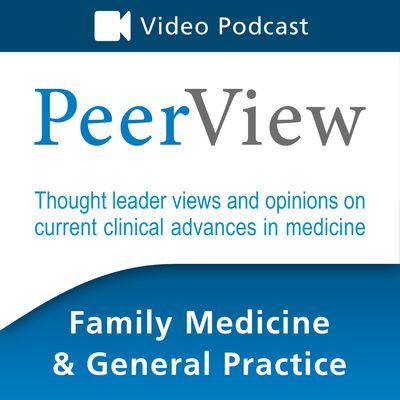PeerView (PVI) is a leading provider of high-quality, innovative continuing education (CME/CE/CPE and MOC) for clinicians and their interprofessional teams. Combining evidence-based medicine and instructional expertise, PeerView activities improve the knowledge, skills, and strategies that support clinical performance and patient outcomes. PeerView makes its educational programming and expert-led presentations and symposia available through its network of popular podcast channels to support specific specialties and conditions. Each episode includes a link to request CME/CE credit for participation. PeerView is solely responsible for the selection of topics, the preparation of editorial content, and the distribution of all materials it publishes.
http://ww2.peerview.com
Liana G. Apostolova, MS, MD, FAAN - Accelerating Progress in the Treatment of Alzheimer’s Disease: How Can We Achieve Timely and Accurate Neuropathological Diagnosis and Precision Management of Mild Cognitive Impairment in Early Alzheimer’s Disease?
Go online to PeerView.com/JYU860 to view the activity, download slides and practice aids, and complete the post-test to earn credit. Alzheimer’s disease (AD) is a devastating, progressive neurodegenerative disorder affecting 10% of people over age 65 and increasing in global prevalence. Recent advances in disease-modifying therapies have opened the door to the possibility of treatment approaches that can slow or prevent disease progression and improve patient outcomes. Now, with several anti–amyloid beta (Aβ) monoclonal antibodies in late-stage development, there is hope for families, clinicians, and researchers. The greatest likelihood of treatment success lies in timely diagnosis and early intervention. In this activity, based on a live symposium held at the AD/PD 2022 International Conference on Alzheimer's and Parkinson's Diseases in Barcelona, Spain, an international panel of experts will discuss the importance of early recognition and diagnosis of AD and present the latest evidence on validated and emerging biomarkers that can aid in the early diagnosis of AD. They will also explore the mechanisms of action, efficacy, and safety data for promising disease-modifying therapies in development for the treatment of AD. Using patient case examples to frame the discussion, the expert faculty panel will provide practical guidance on how clinicians can effectively and safely integrate new diagnostic tools and disease-modifying therapies into clinical practice. Upon completion of this activity, participants should be better able to: Describe the rationale for identifying patients at risk for Alzheimer’s disease (AD) early in the disease course, Utilize validated neuroimaging techniques and molecular biomarkers to make early and accurate neuropathological diagnoses of AD, Select appropriate AD patients who may benefit from novel disease-modifying therapies based on an understanding of their respective mechanisms of action, efficacy, and safety profiles.
